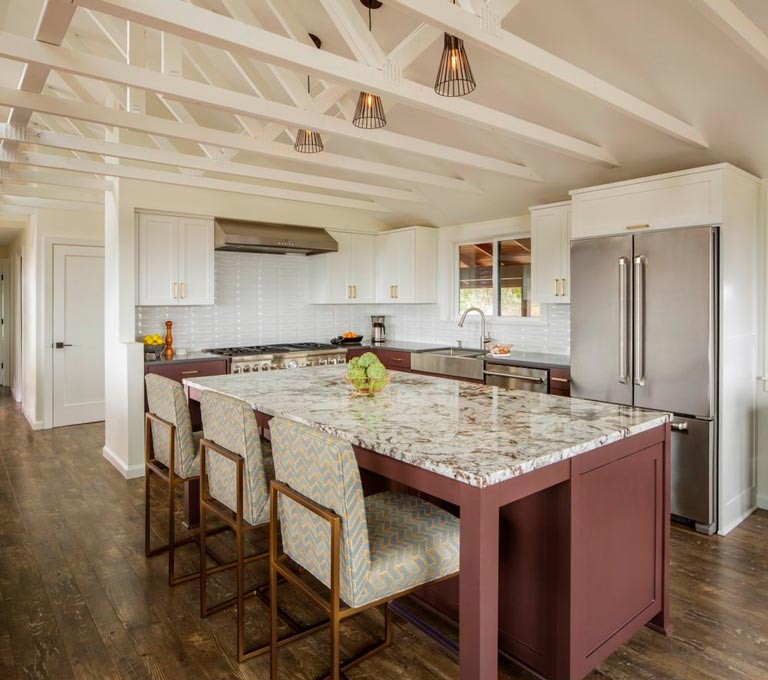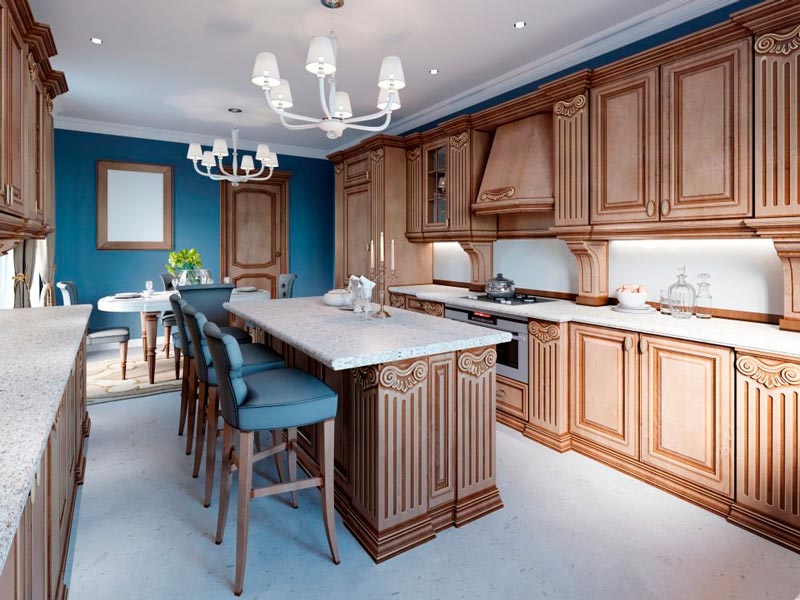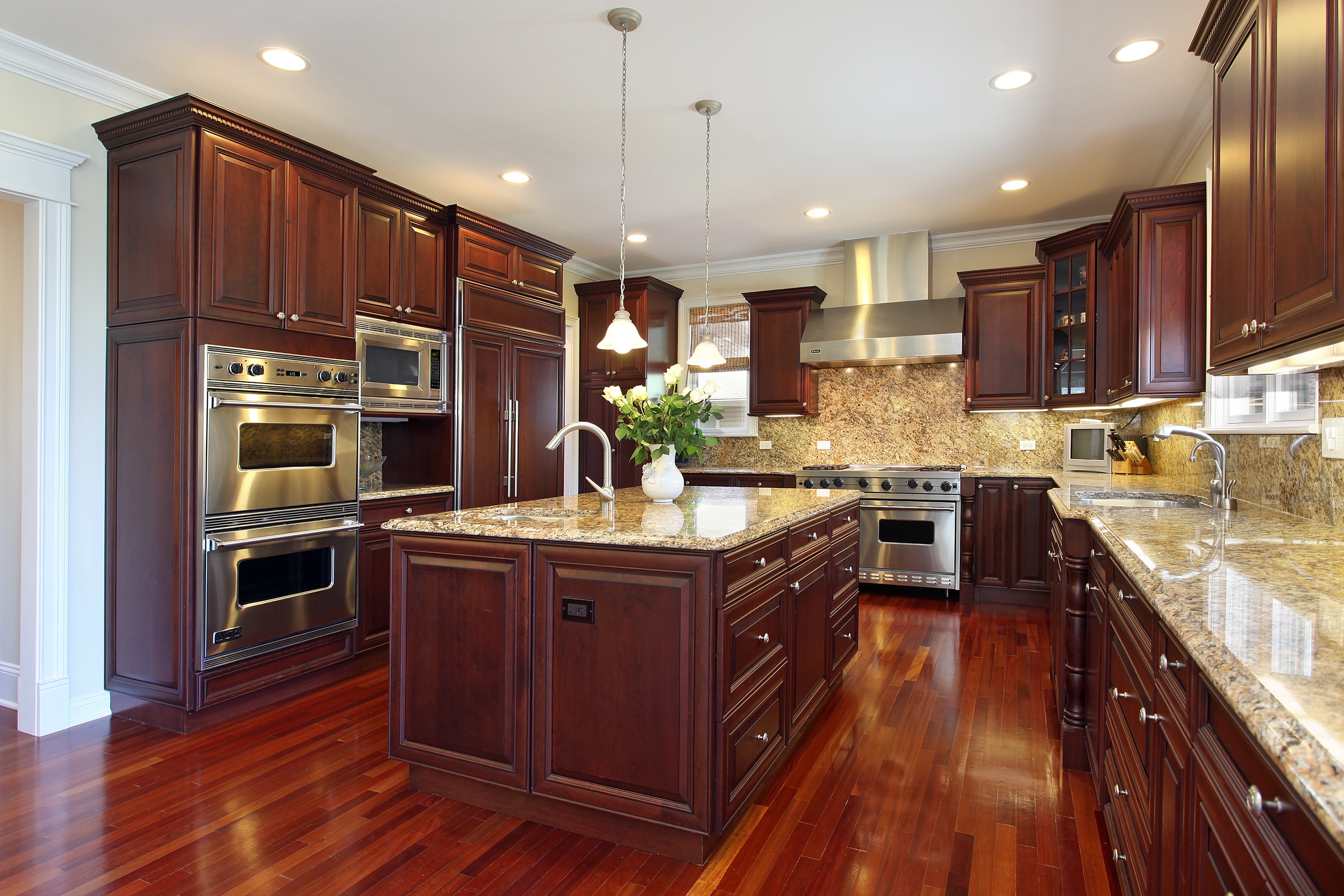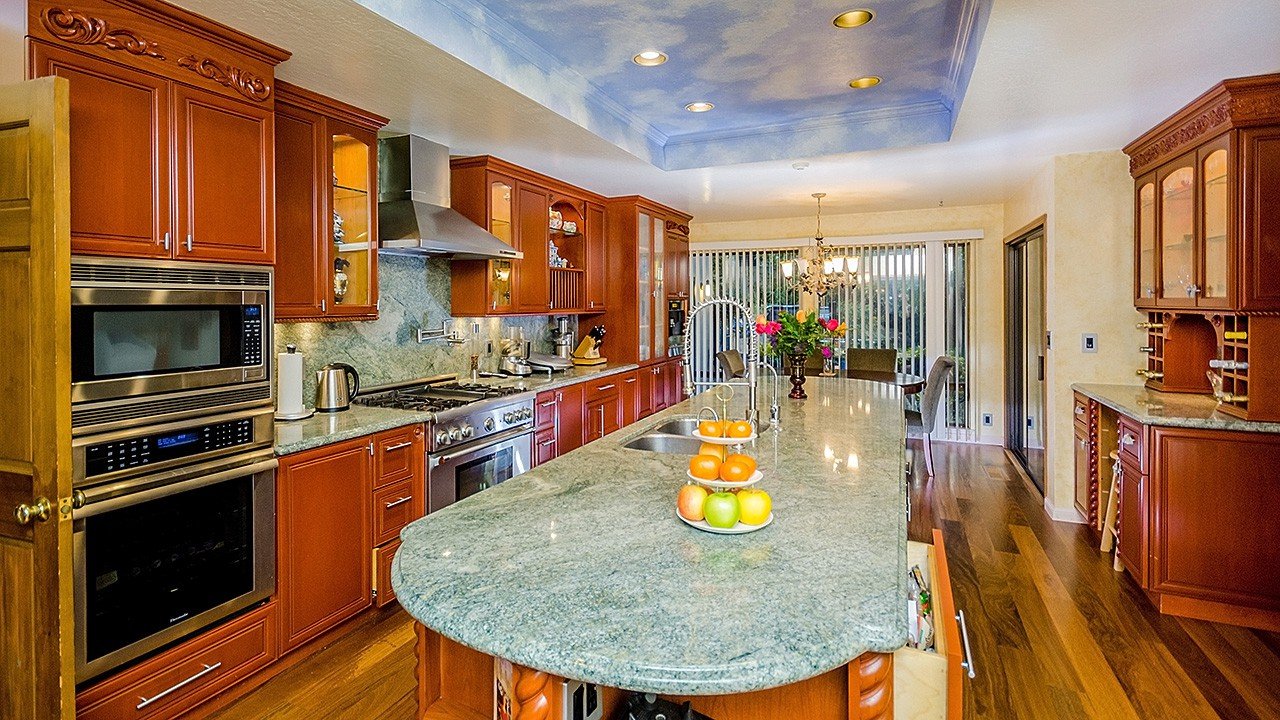How to Remove Stains from Granite

Granite countertops are elegant and beautiful. Almost any kitchen top that is made out of granite suddenly becomes a work of art. Granite is surely a worthy upgrade to your kitchen.
Despite its beauty, granite can be delicate and needs to be taken care of. I know what you mean, it’s made of stone right? Granite can still be prone to a number of environmental factors natural or otherwise that can cause it to lose its beauty. Once stained or discolored, your granite pieces immediately lose aesthetics and consequently, value. All is not lost, there are a few tricks that can help you restore it to its former glory.

Is it Stain or Etch?
Cleaning granite stains can be a tricky task. Before rolling up your sleeves and putting on your handyman hat, there are a few things to consider before you start cleaning granite stains from your countertops. Discoloration can come from a few different sources. To each type of monster, a different poison.
Stains are one of the most common kinds of discoloration. They are caused by the absorption of materials into the pores of the stone causing it to have a different color from the rest of the countertop. They can either come from spills or prolonged exposure to chemicals. The good news is, once the staining agent is removed, the stain on the granite countertop is gone too.
Etches are a whole different story altogether. They are not caused by the absorption of material but rather a change in the chemical composition of the surface of the rock. They do not disappear once you remove the chemical or fixed by common granite stain removers. Most of the time it requires professional help. Etches are commonly caused by exposure to highly acidic or alkaline chemicals that cause discoloration. You will need to assess if the damage is on the finish or has reached the stone itself. If the damage is on the stone then the solution is to have it refinished by a professional. Do not hesitate to seek help and ask questions. They will be happy to address your concerns.

Check one of our best projects to admire the look of a perfectly stainless granite countertop.
What kind of stain?
Identifying the nature of the stain is important as it may determine how to get stains off the granite. Here are some types of stains and the chemicals or procedures used to clean them:
How to Remove Organic Stains from Granite
Organic stains are typically food or beverages that cause discoloration of your granite. Coffee and tea spills, gravy, mustard, and soda are the most common offenders. These can be cleaned by 30%-40% by volume concentration of hydrogen peroxide.
How to Remove Inorganic Stains from Granite
Inks and dyes are also materials that are commonly found in the kitchen. Any liquid that is commonly found in the kitchen, or anywhere for that matter, is prone to spillage. These granite staining agents can be cleaned mostly by hydrogen peroxide. Ink can be effectively removed by rubbing alcohol.
How to Remove Oil Stains from Granite
Fat is flavor! It’s a staple in any and all kitchens. So is oil spillage. To remove an oil stain from granite, baking soda mixed with water should do the trick. Pure acetone is also used to remove oil stains from granite.
How to Remove Biological Stains from Granite
Moist and warm conditions typical for the kitchen are the favorite breeding grounds for biological growth such as mold and mildew. Can you use vinegar on granite? Absolutely not! Abrasive cleaning products that contain vinegar, lemon, or orange can harm your natural stone. Can you use bleach on granite? Occasional cleaning with bleach is safe for granite. Also, you can use mold and mildew commercial cleaning agents.
How to Remove Metal Stains from Granite
Rust stains and copper stains are no stranger to the kitchen environment. They are also a common sight on granite countertops from your favorite knives and cookware. Metal stains can be removed from granite through commercially available rust stain removers.
How to Remove Water Stains from Granite
Unlike hard or heavy water stains, these water stains are caused by the absorption of water into the stone leading to temporary discoloration. This is common on unsealed granite surfaces. Don’t worry, the discoloration of granite will disappear as the water evaporates.
How to Remove Hard Water Stains from Granite
Hard or heavy, water stains are most often caused by calcium deposits left on your surfaces. This is not an issue you only have in your car during acid rains! It’s also a problem that is very common in the kitchen. These stains on granite can be addressed by using a mild detergent and a brush with soft bristles.

Unsure what caused the stain?
Operating under the assumption that few of us are expert chemists or Sherlock Holmes, you might have a hard time finding out how the stain got there in the first place. This is a common problem for people who have just recently moved into an apartment, house, or condo.
Don’t worry, you don’t have to play detective or get a chemistry degree. There is a favorite go-to solution for removing the majority of granite stains. Poultice.
The following are the simple steps that you need to take to use poultice effectively to remove stains from granite countertop:
- First, start by mixing poultice. Water and baking soda poultice for granite help remove oil-related stains, while combined water and hydrogen peroxide are great for others. For your mix you want the consistency of a thick paste. It should also have a puffy appearance.
- Next, apply the paste to the stained area of granite. The thickness should be at a quarter of an inch and should go slightly beyond the stain borders to ensure that you cover the full surface area of the stain.
- You want to leave the paste undisturbed for some time, so put plastic wrap over the paste to achieve the best results. Poke tiny holes in the plastic wrap to give it some breathing room and allow for evaporation.
- After 24 hours, remove the plastic wrap only. Assess the condition of the paste to see if it has completely dried up.
- Once dry, remove the paste from granite with a plastic scraper and wipe off the excess with a microfiber cloth.
- Assess your handiwork. If the stain is removed, take a minute to celebrate your success! If it’s not completely gone, don’t worry! For heavier stains, the process might need to be repeated.
With the right tools and some added knowledge on how to remove stains from granite countertops, you can save yourself a ton of money by doing it yourself!
Granite Selection
If you are interested in replacing or upgrading your home or professional kitchen’s granite, Granite Selection is the one for you. Located in Elk Grove, IL, we specialize in the design, fabrication, and installation of custom granite tops. We are a favorite of both builders and homeowners in the greater Chicago area. A reputation that can only be built through quality work.




